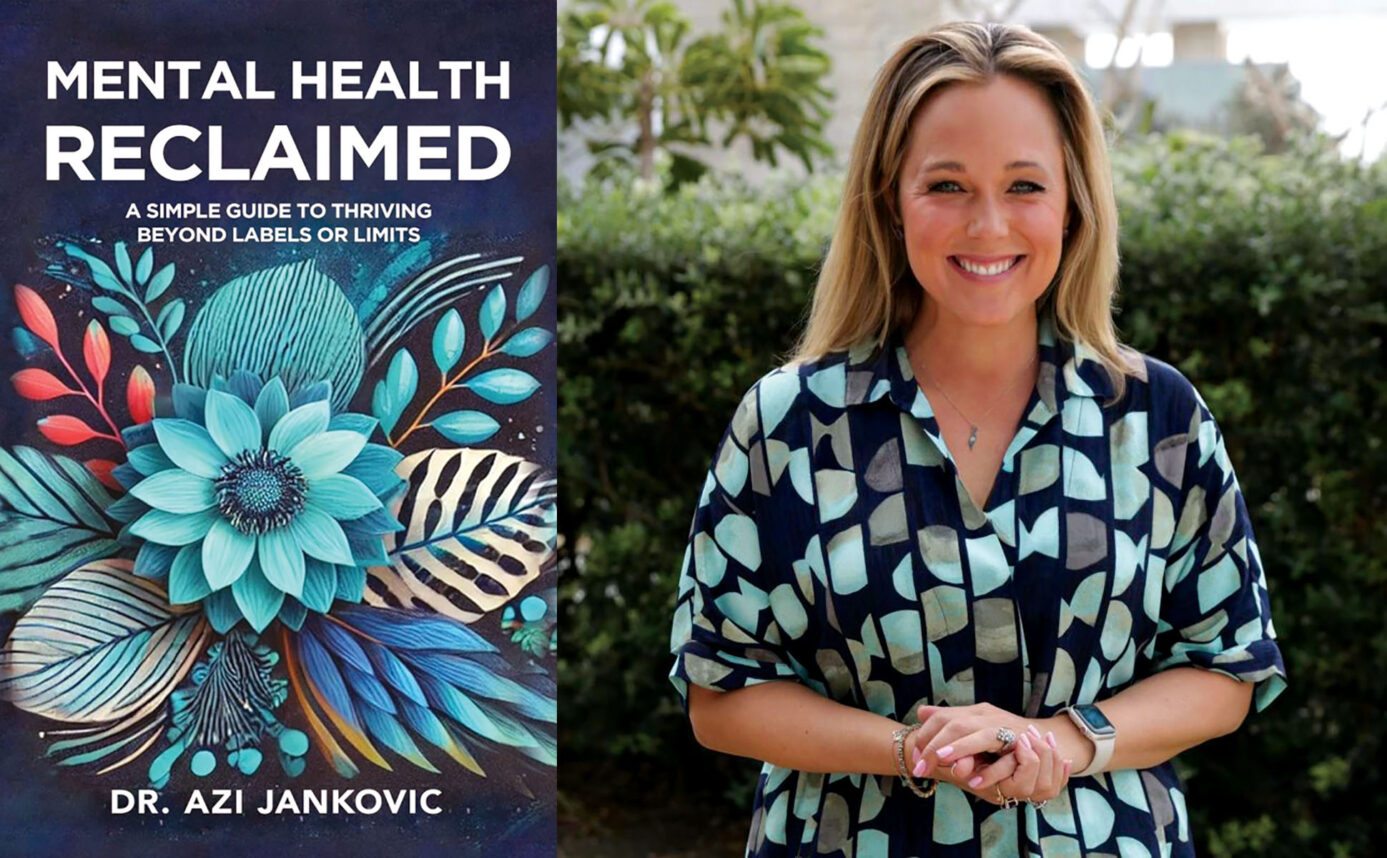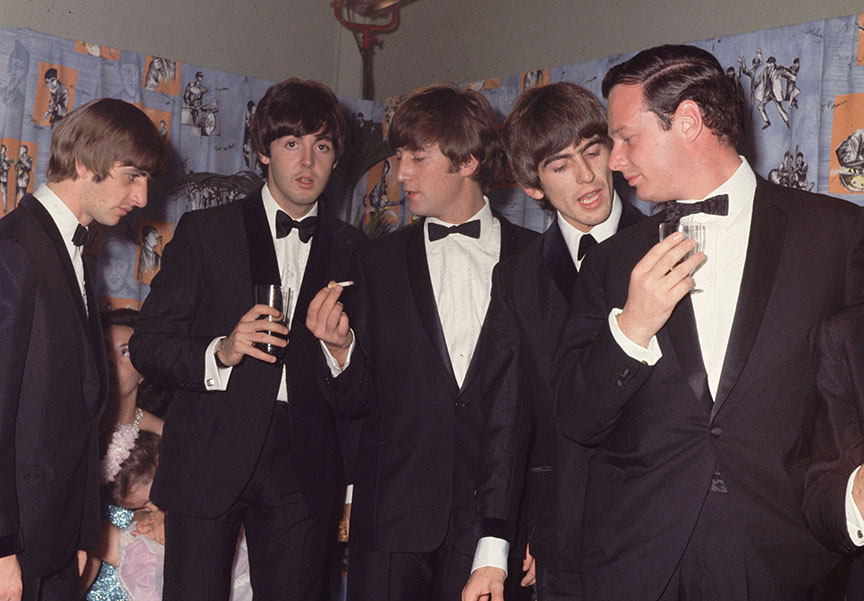The increasing ubiquity of social media raises the question: How should Jews behave online? Conversations with rabbis, educators and even one lawyer, as well as with a number of Jewish Web innovators led to the following guidelines.
1. I am the Web. “Thy God?” No, but don’t ignore my power.
Using social media is no longer optional. Across the denominational spectrum, leaders of communities and congregations are reaching out to Jews online.
“Maybe we ought to say that we’re people of the Facebook now,” said Rabbi Denise Eger of Congregation Kol Ami in West Hollywood. An avid blogger, Eger recently had her synagogue added to Foursquare, and, last Shavuot, she and other Reform rabbis tweeted biblical verses (“Love your neighbor as yourself #TORAH”) every hour on the hour. Her enthusiasm for social media is unbridled. “It brings torah to where the Jews are,” Eger said. “And that’s what Moses did: He brought Torah down from Sinai to where the Jews were.”
Chabad Lubavitch’s Web site, meanwhile, is the most frequently visited Jewish Web site in the world, according to Rabbi Dovid Eliezrie of the North County Chabad Center in Yorba Linda. Chabad.org and its affiliate sites aim to be one-stop shops for everything Jewish. “The shluchim (Chabad emissaries) now are using the net very aggressively to promote their centers and their activities,” Eliezrie said. “You can sell your chametz, or you can find out what time Shabbos starts in Tasmania.”
2. Web mensches shall have other laws aside from mine.
“It’s the wild, wild West,” said Erik Syverson, a Los Angeles-based attorney speaking about the existing case law relating to the Internet, his area of specialty. “The law is the last thing to adapt to changes in society, so there’s almost nothing out there.”
Which helps explain why appropriate use of social media is of real concern in the Jewish community, and particularly among Jewish educators, many of whom have concluded that the best rules for the brave new world of social media are the same that worked for the old world that existed without it.
“Jewish values are as relevant to online communications as they are to offline communications,” said Sam Gliksman, director of educational technology at New Community Jewish High School and contributor to the Chai Tech blog at jewishjournal.com. “It’s very easy to feel as if you’re anonymous when you’re sitting in front of a computer, when in actual fact you’re not,” Gliksman said. “When you communicate with anyone using a computer, there’s someone on the other end of the line. If you behave online as if you’re sitting across the table from the person you’re talking to, I think you would often behave very differently.”
Last fall, the Milken Community High School—which is developing its own school-wide online social community site—established one hard-and-fast rule governing the use of Facebook and other social media sites. “Faculty members are not allowed to friend students or parents of students until after the student has graduated from the school,” said Milken’s head Jason Ablin. “One of my teachers had to de-friend 150 kids.”
3. Don’t hate the slacktivists. It’s all right to click in vain.
Slacktivists?
“It’s like low-level activism,” said Andy Neusner, Web content manager at The Jewish Federations of North America.
The Jewish Community Heroes Campaign, which Neusner manages, is one example. Hundreds of nominees have been voted upon by over 100,000 people because, for many Jews (particularly younger ones with more time than money), clicking is much easier than donating.
“I don’t much care for the term,” said Allison H. Fine, co-author of “The Networked Nonprofit: Connecting With Social Media to Drive Change” (Jossey-Bass: 2010). “It has such a negative connotation to it.”
“People are doing what nonprofits are asking them to do,” Fine said, defending slacktivists. “There’s a lot of friending causes on Facebook and fanning of pages. It’s just where the field has been. There’s nothing wrong about that.”
Organizations, Fine said, must move a person to go beyond that first click by laying out possible next steps. “A number of them would be willing to comment on blogs or post a video or host a house party,” Fine said, “but they have to be asked to do it.”
Lou Cove, executive director of Reboot, a network of Jews thinking creatively about how to adapt Jewish traditions and rituals to today’s world, suggested another possible benefit to slacktivism: “The one advantage of friending and liking—even if you yourself don’t do much more—is that other people are going to see it,” Cove said, “and that might be the person who will get really inspired by it.”
4. Remember the Sabbath, keep it holy—and unplug.
In January, Reboot began circulating and discussing a list of 10 principles intended to help people carve a day of rest out of their hectic weeks. They called it the “Sabbath Manifesto”, and the first idea—“Avoid technology”—attracted the most attention.
Cove recalled a planning meeting that took place in San Francisco earlier this year. “They handed out little burlap bags, called cell phone sleeping bags,” and told people to turn off their cell phones. “This turned out to be quite controversial,” said Cove. Some people liked the idea, Cove said, “but many people said, ‘I can’t shut it off. I can’t part with it. This is crazy.’ ”
Realizing they’d hit a nerve, Reboot threw down the gauntlet, challenging America to a 24-hour National Day of Unplugging , starting at sundown on Friday, March 19, and lasting until sundown on Saturday, March 20. Numerous media outlets covered the story, including the CBS’ Katie Couric. Thousands participated—and not just Jews.
“Jewish life allows for—and kind of mandates—this space and time within which to shut down,” Cove said. “Even though this was not an issue when Shabbos was mandated, it’s just a great gift that we can convey to a broader community, well beyond our own.”
Reboot plans to reprise the National Day of Unplugging in March 2011.
5. Honor your bubbe and zayde (even if they’re technophobes).
According to a study released in early 2009, women over 55 are the fastest-growing demographic on Facebook. Older Jewish Americans are becoming increasingly adept at using new social media technology to interact with their families.
“I’ve Skyped people into bar mitzvahs, and services,” said Rabbi Paul Kipnes of Congregation Or Ami in Calabasas. “The Internet brings people closer when they’re so far away.”
The Internet isn’t the only technology to do this. “My folks didn’t come to my youngest son’s bris,” Kipnes said. “We called them and they actually read their part over the phone.” But certain things that would have been challenging in the telephone age are being done regularly online—like connecting homebound mourners to a minyan using video-conferencing programs like Skype or iChat. “People would much rather be in shul, but if they can’t come, they can still be present,” said Rabbi Dan Moskovitz of Temple Judea.
And if your bubbe hasn’t taken the Facebook plunge yet—or even if she has—you should probably speak to her to announce life-changing news. “Usually it’s pretty easy to predict who’d be insulted to hear about your engagement online,” author and Etiquette Grrl Lesley Carlin wrote in an e-mail. “Parents and grandparents, too, I think, deserve to hear it from you personally rather than via FB or Twitter. And think about it—do you really want Grandma commenting something like, ‘Who is this Harry person? What happened to that lovely boy, Theo, with the nice teeth?’ ”

































 More news and opinions than at a Shabbat dinner, right in your inbox.
More news and opinions than at a Shabbat dinner, right in your inbox.